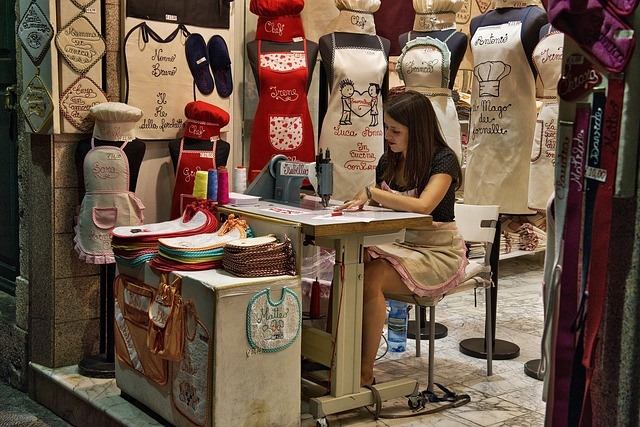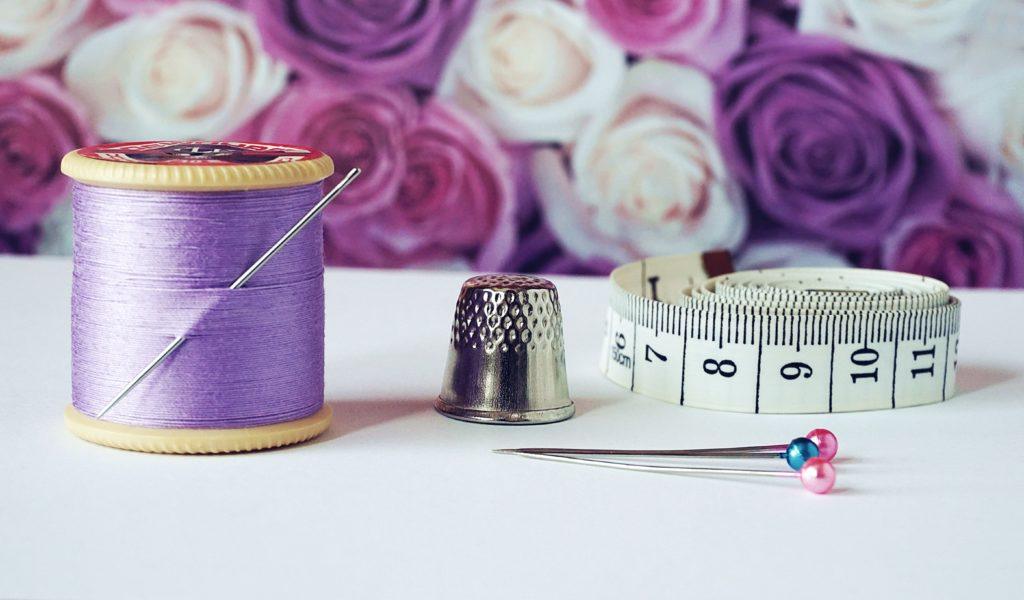Do you want to turn your sewing hobby into a career? Do you have doubts and fears about quitting your day job? Are you not even sure what it means to have a sewing or textile career?
Worry no more! Here is some information about careers in the sewing industry, to help you figure out what you want to do.

Sewing Careers
Sewing careers encompass several different kinds of crafts that have to do with fabric. Sewing professionals specifically focus on binding materials with needle and thread, while apparel workers turn cuts of fabric into clothing.
Tailors and dressmakers alter garments and sometimes create custom clothing. A lot of sewing careers are now in the manufacturing industry, where there is a much larger-scale kind of garment production.
There are also sewing careers that focus on specific kinds of garments, such as glovers, hatters, shoemakers, quilters, corsetiers, and even parachute riggers or sailmakers.
Other people are embroiderers, adding finishing touches to already sewed products, or designers, creating many kinds of new products for the world to see and purchase.
It’s important to note that the range of textile careers expands even beyond working with the fabric itself.
Patternmakers convert designers’ creations into instructions that other people can follow. Sewing machine operators focus on creating, assembling, and repairing sewing equipment.

The textile industry in the digital age of today also needs computer programmers and electricians. Sewing teachers train the next generation of fabric professionals, and any sewing company needs managers, advertisers, public relations agents, and sales operators in order to run well.
This means that even if you don’t have much experience with a needle and thread, it is possible to get involved in this field!
What About Textile Careers?
There are lots of reasons why people turn to a career in the sewing industry. You might already sew as a hobby, and who doesn’t want to do what they love for a living?
Sewing is also a clear way towards becoming a businessperson, with control over your materials, products, and sales strategy.
Fabric is also an integral part of society. From a beautiful wedding dress to a well-worn sports team jersey, clothes are a marker of both special occasions and personal identities.
What we wear, and what we create, is an expression of ourselves. When you’re in one of the many fabric professions, you are taking part in creation, and that is frankly a super neat thing.
What Should You Think About Before You Get Started?
As with any career, it’s important to understand the job before you get started.
Knowing the rudiments of sewing is a vital first step for entering the textile industry on any level, even if your day job probably won’t have you picking up a needle and thread on a regular basis.
A designer needs to know what is possible in order to create great designs, after all, and a sewing machine operator ought to understand how their creation will eventually be used, so as to develop the most useful tool!

Education is a worthwhile investment, either through a professional certificate program in a university setting or by taking on an apprenticeship in the field you’re most interested in.
You should also keep in mind that sewing, like any craft, takes a lot of practice before you can start making money from it. You will not be great at it immediately. Fear of mistakes will be your enemy here – an enemy that you must confront in order to succeed in your sewing career!
Next, think about where you want to enter the field. Your two main options are starting your own business, or finding employment within an already existing workroom.
The first option, starting your own business, may seem daunting, but it’s a great way to maintain control over your creative visions, and with the ever-increasing prevalence of online stores, it’s easier than ever to begin taking commissions!
The second option is great if you feel that you could benefit the most from learning from other people’s experiences.
In a workplace, you are surrounded by other people who are doing what you aim to do, and have insights and skills that you can take in and use to help form your own identity as a craftsperson!
A workroom may also mean a more reliable paycheck than the commission-work world, which can be invaluable when first starting out.
It is, of course, possible to start out working for someone else, hone your craft there and save up some money, and then strike out on your own to fulfill your creative dreams!
Here’s a video showing details on some fabric professions.
Conclusion
A sewing career can be incredibly rewarding.
Whatever field you choose to pursue, the most important thing is to make sure that your heart is in it. Work hard at your dreams, and you will succeed!
Have you thought about sewing careers?
